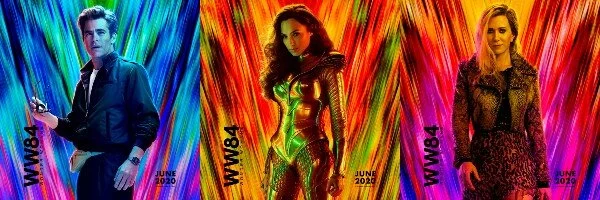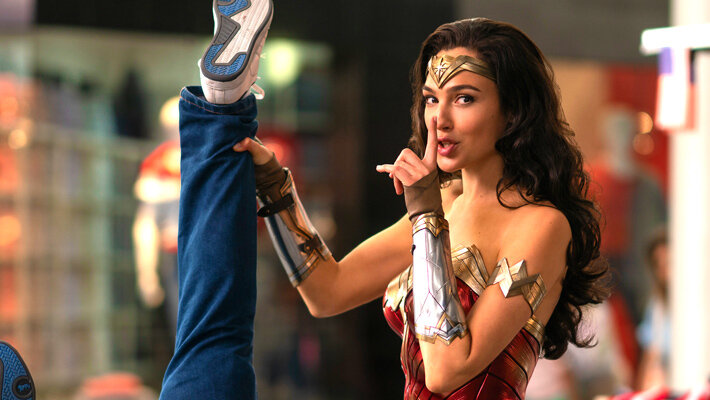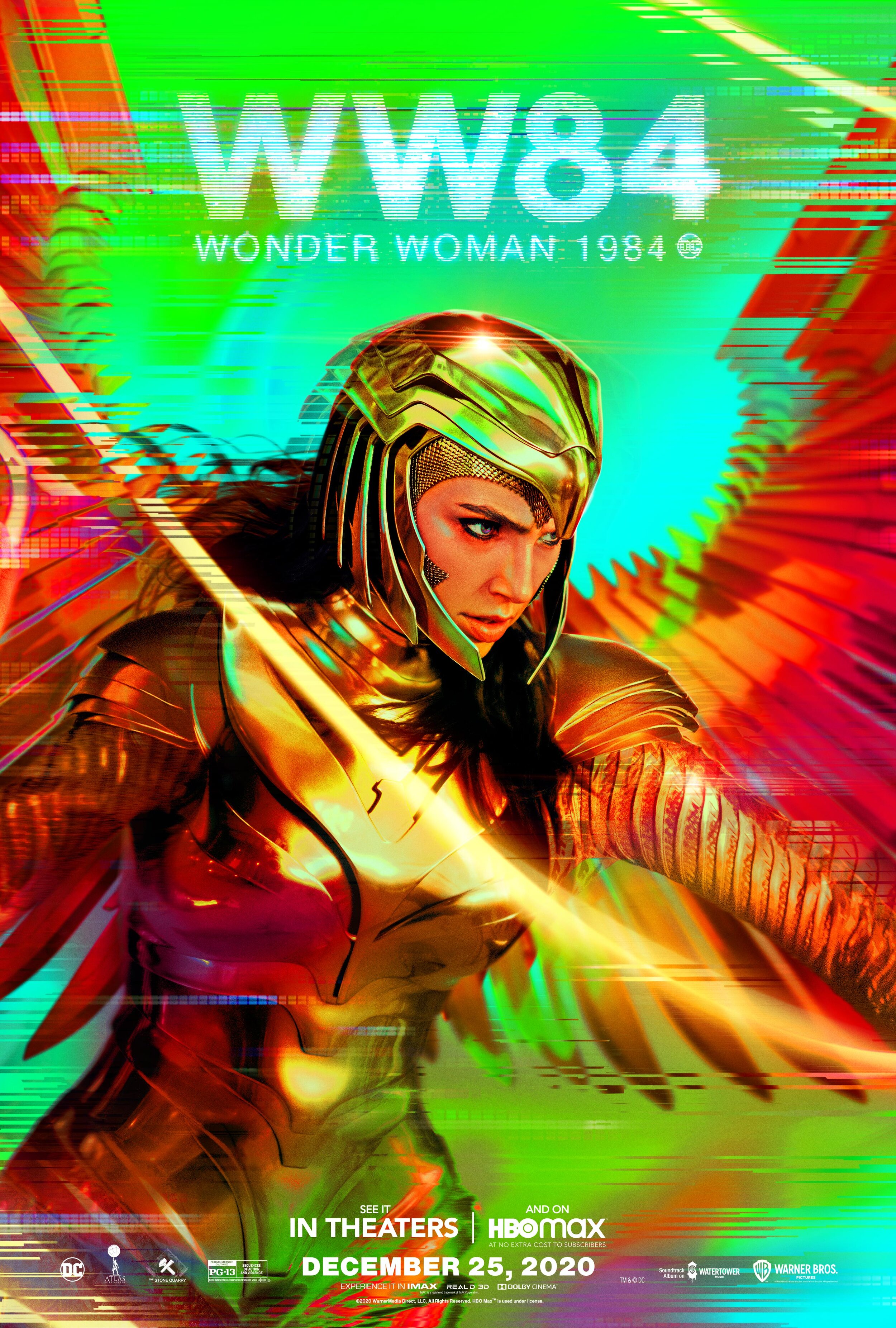I Wish 2020's Wonder Woman 1984 Was a Little Less Ridiculous
Oh, but we were atwitter with excitement for Wonder Woman 1984! I still vividly remember the culture-wide wave of exhilaration that greeted the first images from Patty Jenkins’ superhero sequel.
Everything was so shiny and beautiful and exquisitely retro! In her sleek new golden garb, Wonder Woman was equal parts warrior and goddess. There was absolutely no way a movie that looked this cool and awesome could be anything but an absolute triumph.
We looked forward to Wonder Woman 1984 the same way we looked forward to the release of 1999’s The Phantom Menace. With both films the critical and popular consensus seemed to quickly morph from “That wasn’t quite as amazing as we had hoped” to “that was the greatest disappointment the world has ever known.”
A movie that aspired to instant classic status instead was roasted on podcasts devoted to skewering famously bad movies.
In order to be truly, deeply, hopelessly disappointed you have to have expectations. You have to believe and people believed in Wonder Woman 1984 with an intensity way that made the movie’s inability to deliver all the more shattering.
I assumed that I would watch and write about Wonder Woman 1984 in my capacity as a man who enjoys taking drugs and then going to the movie theater to see the big new superhero movie.
Unfortunately the pandemic made seeing Wonder Woman 1984 in theaters impossible so I ended up finally seeing it on HBO Max in a hotel room in Chicago.
So I am instead writing about Wonder Woman 1984 in my role as a professional chronicler of the egregiously awful and staggeringly misconceived. With Wonder Woman 1984 the formerly beloved D.C franchise perversely and inexplicably skips from Superman to Superman 3 and Superman IV: The Quest for Peace with a whole lot of The Wishmaster, “The Monkey’s Paw” and Heaven Can Wait thrown in for good measure.
Incidentally, if you are going too ineptly rip off the classic short story “The Monkey’s Paw”, as everyone does, don’t call attention to it by having MULTIPLE characters observe that what’s happening is EXACTLY like that classic short story “The Monkey’s Paw”, as Wonder Woman 1984 does.
Ah, but Wonder Woman 1984’s problems run much deeper than clumsy and obvious literary allusions. There’s so much wrong with the movie that it’s hard to know where to begin.
The obvious place would be the artsy dildo-looking wish-granting magic rock at the film’s core. The Artsy Dildo grants wishes but at a terrible price! Also, it comes with a free frogurt. In Wonder Woman 1984 TV huckster Max Lord (Pedro Pascal, enjoyably channeling his Unbearable Weight of Massive Talent costar Nicolas Cage at his most desperate and intense) purloins the aforementioned magical fuck-toy and uses it to amass incredible, almost inconceivable power by granting people’s wishes at the cost of everything they hold dear.
Wonder Woman 1984 illustrates how a society built upon everyone having their biggest wish granted by a power-crazed madman would prove unsustainable and fall apart quickly and dramatically.
the artsy wish dildo
That is not, dear reader, a message anybody needs. It’d be like making a movie about how puppies shouldn’t run for political office and we shouldn’t drop a bunch of nuclear bombs on Maine for no reason.
Wish-based plots spiral out of control almost immediately because wishing is such a mercurial, difficult and uncontrollable story element. It’s difficult enough to keep a story involving a single wish or wisher coherent; Wonder Woman 1984 unwisely ups the difficulty level to impossible extremes by having many of its characters have their fondest wish granted and then, at a certain point, allowing EVERYBODY IN THE WORLD TO HAVE THEIR WISH GRANTED SIMULTANEOUSLY.
That’s when things get a little silly.
This forces us to ask all sorts of thorny questions about wishes the movie has no interest in answering. Don’t the wishes cancel each other out? Aren’t a whole bunch of angry nihilists going to wish to be God so that they can kill the universe for eternity? How do you accommodate those disagreeable folks without also killing the universe for eternity?
Ah, but Maxwell Lord does not care about the infinite troubling implications of a wish-powered world. He’s addicted to sweet, sweet wish-giving and will do anything to get his fix, no matter how destructive or dangerous.
Wonder Woman 1984 doesn’t have a plot so much as it has an endless series of plot holes. It makes less sense the more you think about it, which is almost impressive considering how nonsensical it seems the first time around.
In this stunningly ill-conceived sequel Gal Gadot’s title character is less the iconic ass-kicker of the public imagination than a lonely lady, a Super-Sad-Sack who never got over the death of soulmate Steve Trevor (Chris Pine) many decades earlier.
She’s pining for Pine so when Diana Prince/Wonder Woman gets her hands all over that magical wish-dildo she uses her wish to bring Steve Trevor back to life in the body of some guy.
Steve fucking died. He went to heaven for his eternal reward and then at some point he’s yanked back into the world of the living because THE MOST POWERFUL WOMAN THE WORLD HAS EVER KNOWN can’t get over his death.
Pine has potent chemistry with Gadot but he seems understandably confused as to what he’s even doing in the movie. Pine’s undead aviator perpetually sports a sheepish expression that seems to say, “Yeah, I don’t really need to be in this, do I? I mean, my character died in the last one and I’m honestly just holding Wonder Woman back at this point. So I’m just going to duck out discreetly but please do let me know if you need me for a flashback sequence or something that might bring back my character in a way that doesn’t insult everyone in the known universe: audiences, critics, comic book fans, even tiny babies and dead people.”
Speaking of actors who seem to have no idea what they’re doing in Wonder Woman 1984, beyond picking up a sizable paycheck, Kristin Wiig is wasted as Barbara Ann Minerva, a mousy co-worker of Diana Prince/Wonder Woman who attains super-powers from the magical wishing rock and becomes super-villain Cheetah.
Wonder Woman 1984 is like 1983’s Superman III in the way it clumsily attempts to shoe-horn in the idiosyncratic talents of a unique comic performer into a big-budget exercise in popcorn escapism.
Wiig is stuck playing a hoary superhero movie cliche, the mousy, self-conscious, clumsy misfit who levels up to become a super-villain intent on unleashing their pent-up rage on an unsuspecting world.
This was Jamie Foxx’s Electro in The Amazing Spider-Man 2. It’s also Jim Carrey’s Riddler in Batman Forever and Uma Thurman in Batman and Robin.
Carrey was mostly forgettable as The Riddler but Thurman and Foxx did some of the worst, most embarrassing work of their careers as villains in franchise-killers.
The only time this archetype succeeded was in 1992’s Batman Returns and that’s because Cat-Woman feels like a natural, organic, even inevitable expression of the bottomless rage and resentment of mousy Selina Kyle.
There is a complete and total disconnect, however, between Barbara Ann Minerva, archetypal Kristin Wiig wallflower, and sleek monster Cheetah, particularly in fight scenes so CGI-heavy that I’m not sure Wiig even needed to be on the set when they were filmed.
Wonder Woman 1984 concerns a fantastical contraption that grants humanity’s fondest wishes in a way that makes them regret that they ever made them. That’s not a bad description of the movie itself. It gives us everything it imagined we want—1980s kitsch! Wonder Woman! Weird Romance! Steve Trevor! Kristin Wiig as you’ve never seen her before!—in a way that made us feel bad for wanting them in the first place.
Gadot should at least be grateful that due to her ill-considered superstar cover of “Imagine”, Wonder Woman 1984 was only the second most embarrassing project she was involved with in 2020.
Failure, Fiasco or Secret Success: Fiasco
Check out my Substack here
Did you enjoy this article? Then consider becoming a patron here
AND you can buy my books, signed, from me, at the site’s shop here









